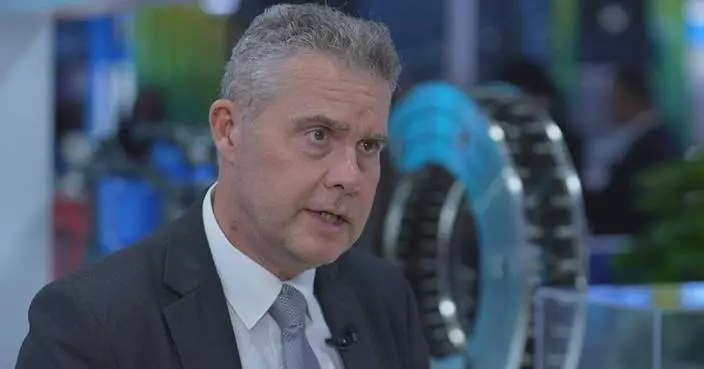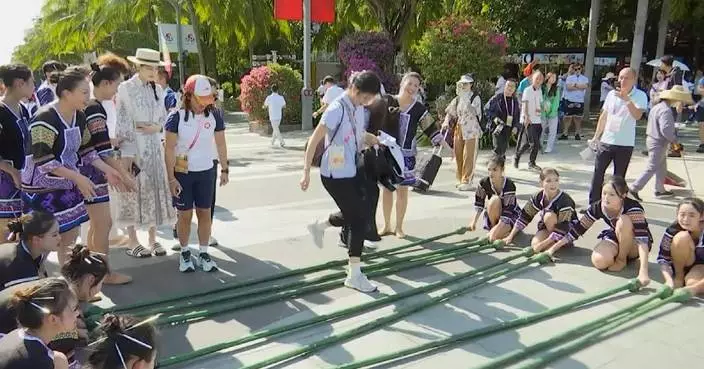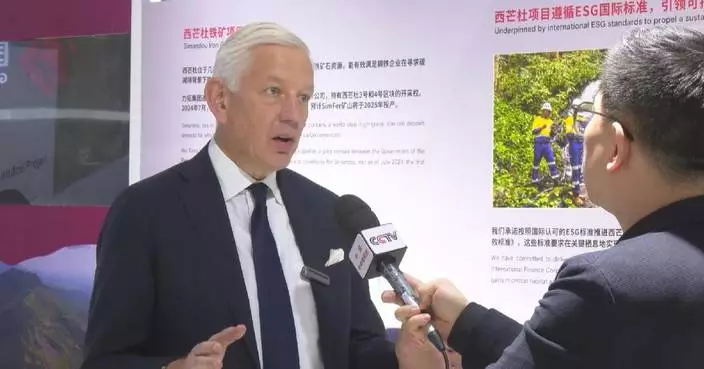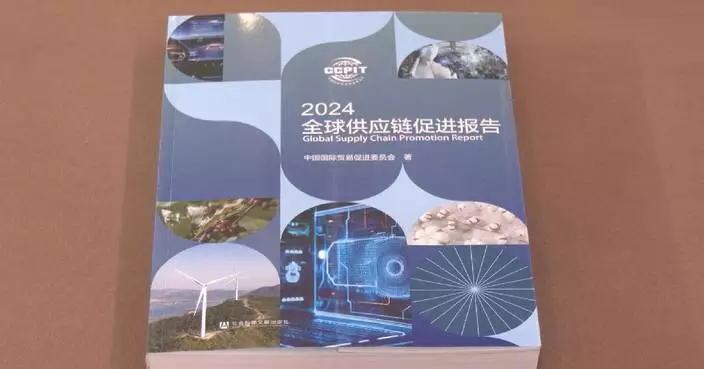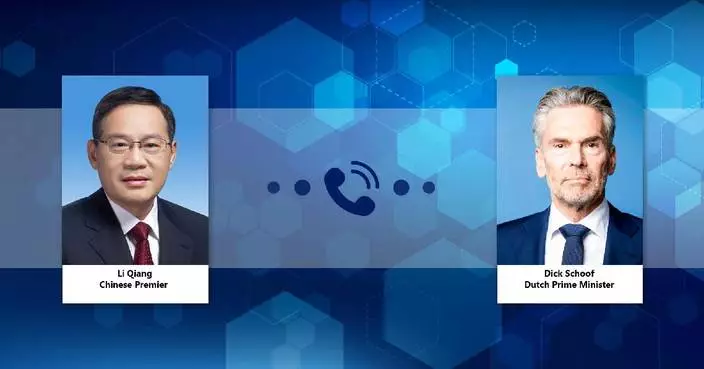A senior official from the U.S. Soy Export Council (USSEC) stressed the urgent need to address climate change and trade protectionism, while expressing optimism for deepening U.S.-China cooperation in the global soybean supply chain, during an interview with the China Global Television Network (CGTN).
Zhang Xiaoping, Greater China Regional Director of the USSEC, shared his insights during the second China International Supply Chain Expo (CISCE), which is taking place in Beijing from Tuesday to Saturday.
Zhang identified climate change and rising trade protectionism as two critical challenges impacting global agricultural supply chains, particularly soybean trade.
"We've seen some challenges, as always, and we see them as the opportunities to continue the partnership with the Chinese industries. So, for the challenges we are having now, namely like climate change, you know agriculture is heavily dependent on weather, so any weather problem will cause some crop failure. This is one thing. And also, a drought can significantly impact the logistics by waterways, by ocean freight, so all those are all related to the climate change. So that's the major challenge to the global soy industry, to the value chain or supply chain. And secondly is the rising global trade protectionism. You know by various measures, for various considerations, so that's natural but that's the fact to have this negative impact on trade liberalization. Free trade will help consumers to get abundant food products at a very low cost. Any problem there will add to the cost. That's not what we call food security, that would cause some challenge to us," he said.
Despite these significant challenges, Zhang remained optimistic about the potential for US-China cooperation in the global soybean supply chain.
"So we have this confidence that we can provide value to the Chinese industry to support their high-quality development that will be featured as low-carbon, green and sustainable or environmental friendly annual production and food production. That's why we believe we have this strength," Zhang said.
Themed "Connecting the World for a Shared Future," the second edition of the CISCE highlights cutting-edge technologies, innovative products, and essential supporting services across various industrial chains, including finance, insurance, logistics, distribution, consulting, and legal services.
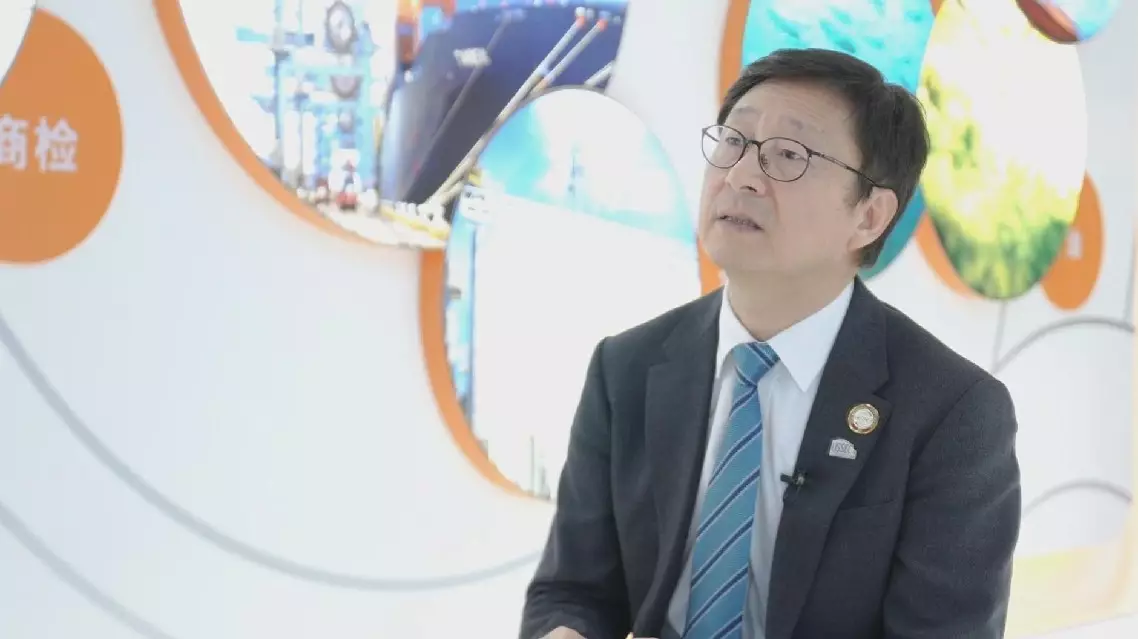
US expert on challenges to global agricultural supply chains, US-China cooperation
The 2024 Belt and Road Media Community Summit Forum, hosted by the China Media Group (CMG), was held in southwest China's Chongqing Municipality on Wednesday, gathering attendees from around the world to explore innovative cooperation models and discuss the role of new technologies in advancing the media industry.
The forum, themed "Land Meets Sea: Towards Innovation, Intelligence, and the Future," brought together experts, scholars, and representatives from 160 media organizations across 30 countries and regions.
The event saw the launch of a declaration focused on the joint development and sharing of a technology innovation ecosystem for the Belt and Road media community. The declaration calls on global media outlets to share opportunities, manage risks and promote ethical use of artificial intelligence (AI).
In his opening remarks, Shen Haixiong, president of the CMG, highlighted the group's commitment to enhancing global media cooperation, improving connectivity, and fostering platforms for international dialogue.
After eight years of development, the Belt and Road Media Community, initiated by the CMG, has expanded to include 148 members and partners from 64 countries and regions.
International media participants noted that the initiatives put forward by the community are helping play a crucial role in expanding mutually beneficial cooperation among media outlets worldwide.
"The initiative by the Belt and Road Media Community has been one of the cornerstones in bringing media together, in working together and developing productions and co-productions, which we have been involved with. Every year there are technologies changing, and I think our focus will be to help and guide our members in the use of these technologies, especially AI these days. Because the ethical issues around AI has become a very, very important area for us to focus," said Ahmed Nadeem, secretary general of the Asia-Pacific Broadcasting Union.
During the opening ceremony, several international cooperation projects were signed, while scholars and experts in the media sector were also invited to share their insights on the theme of media transformation through generative AI.
Since its establishment in 2016, the Belt and Road Media Community Summit Forum has evolved into a vital platform for communication and collaboration and has also served as a significant initiative to promote cultural exchange and mutual learning among diverse civilizations.
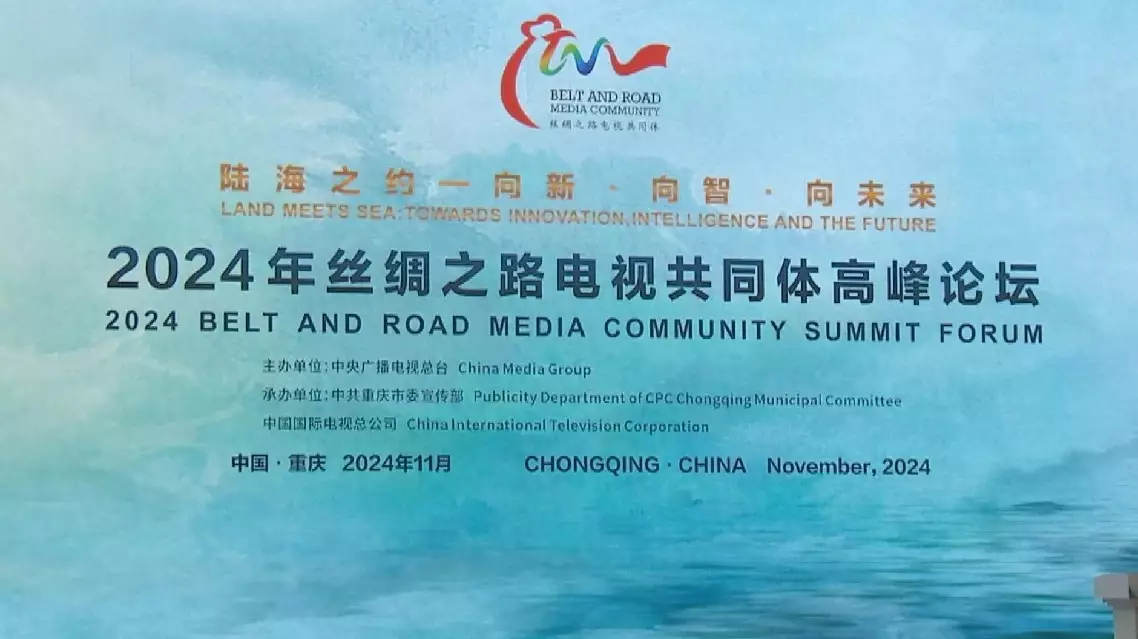
Belt and Road Media Community Summit Forum held in Chongqing
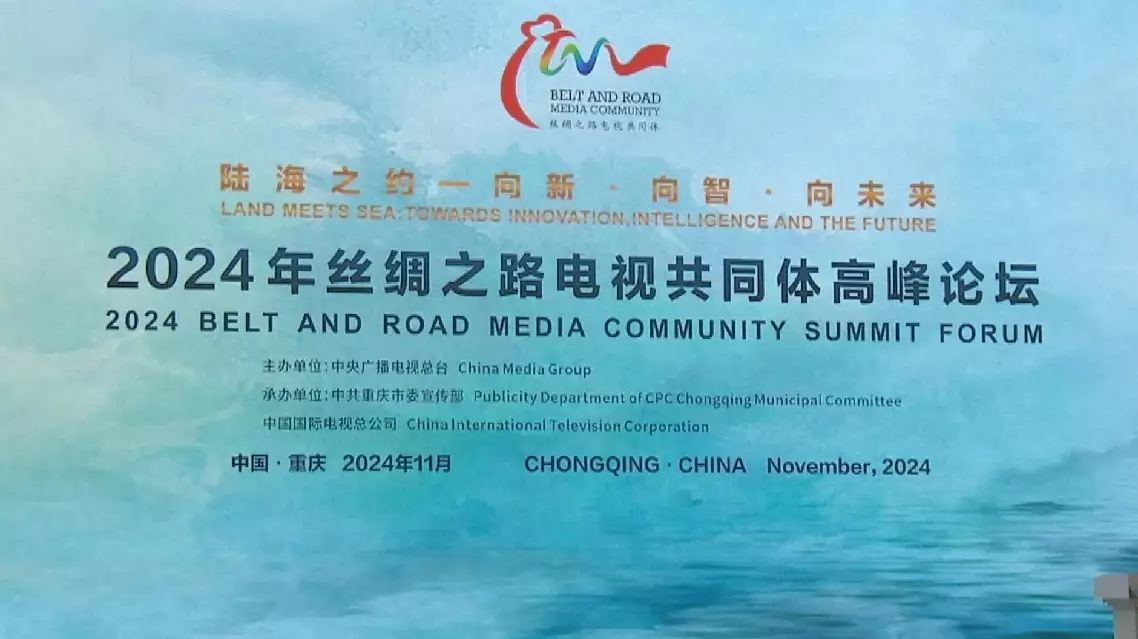
Belt and Road Media Community Summit Forum held in Chongqing





